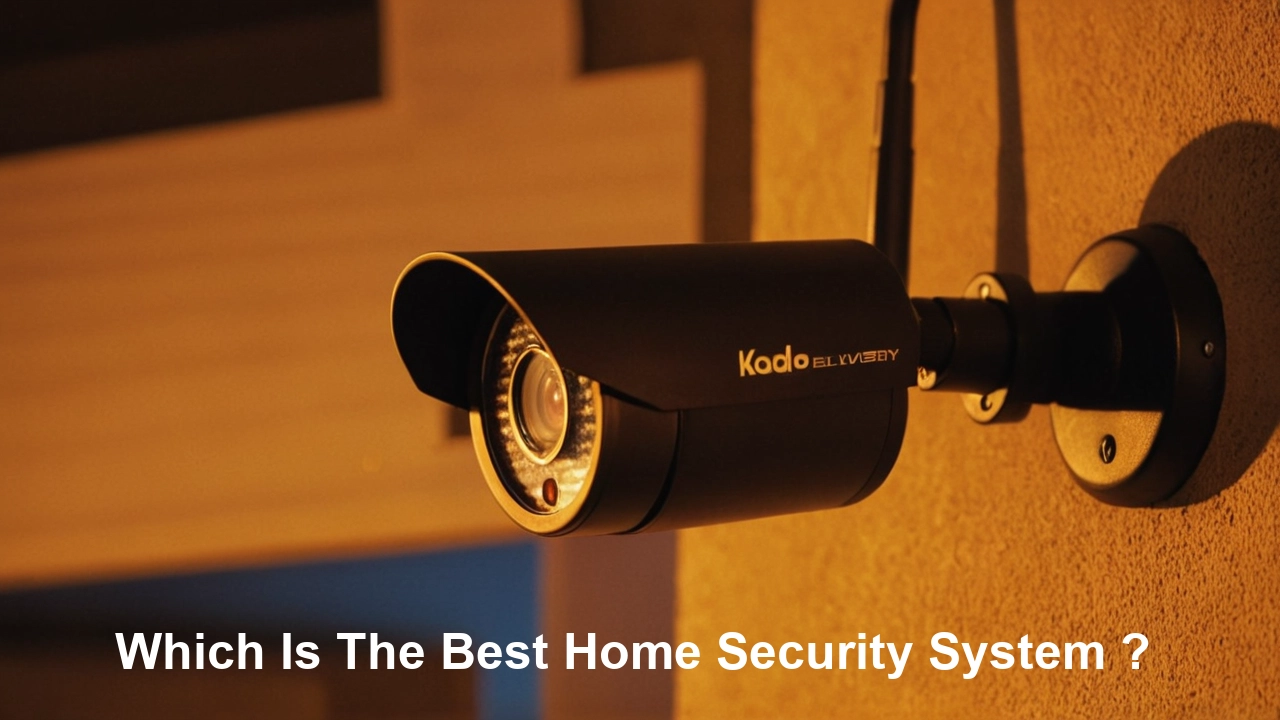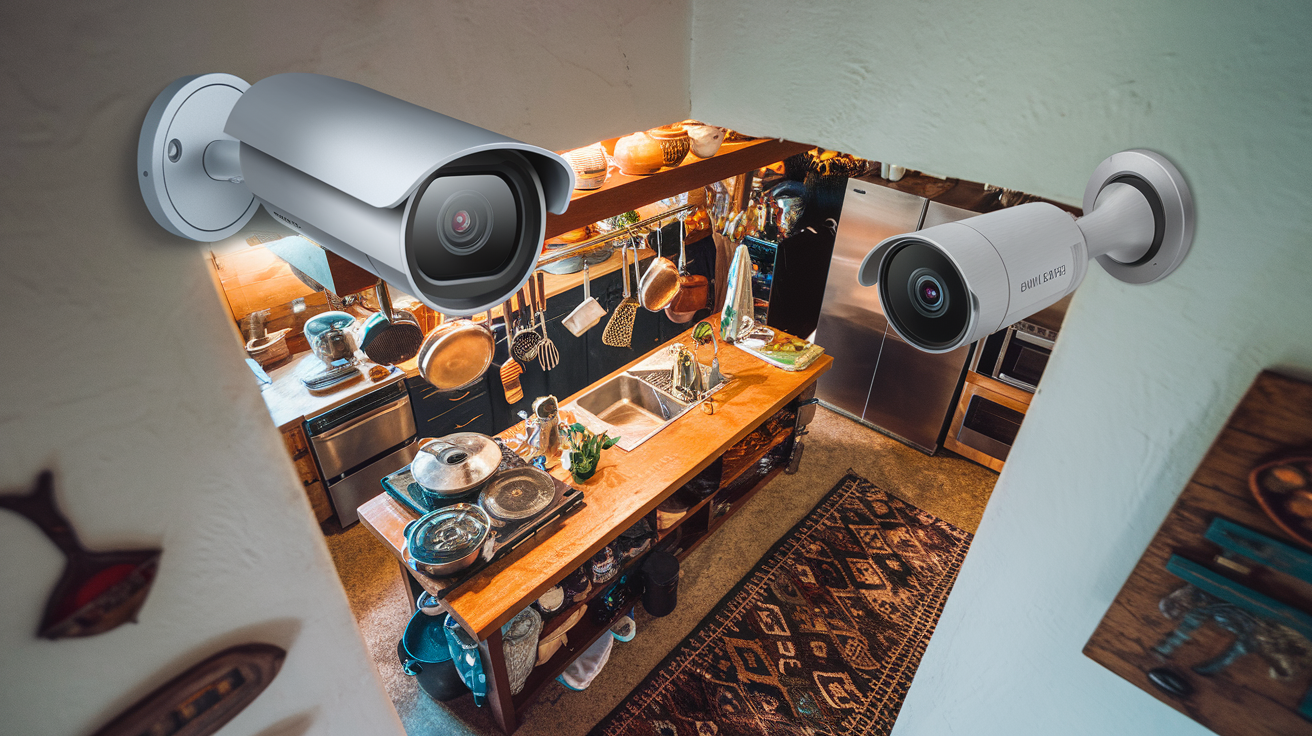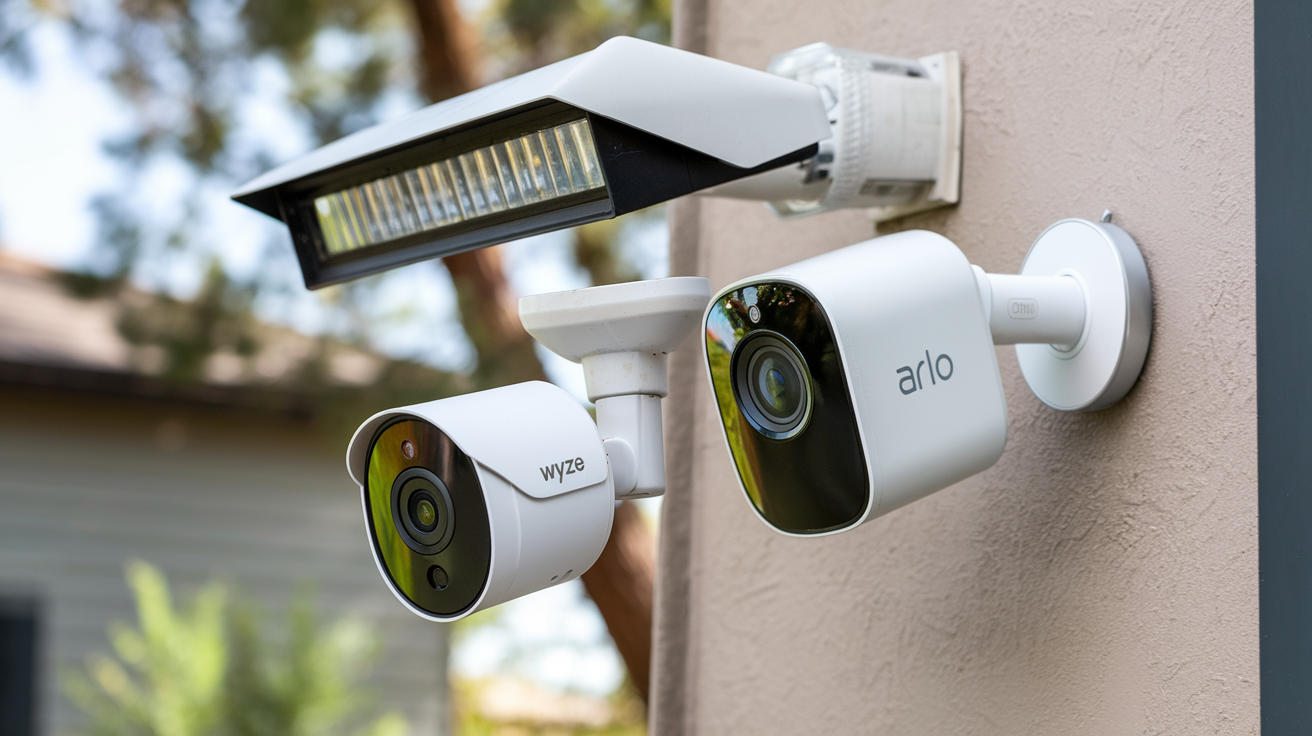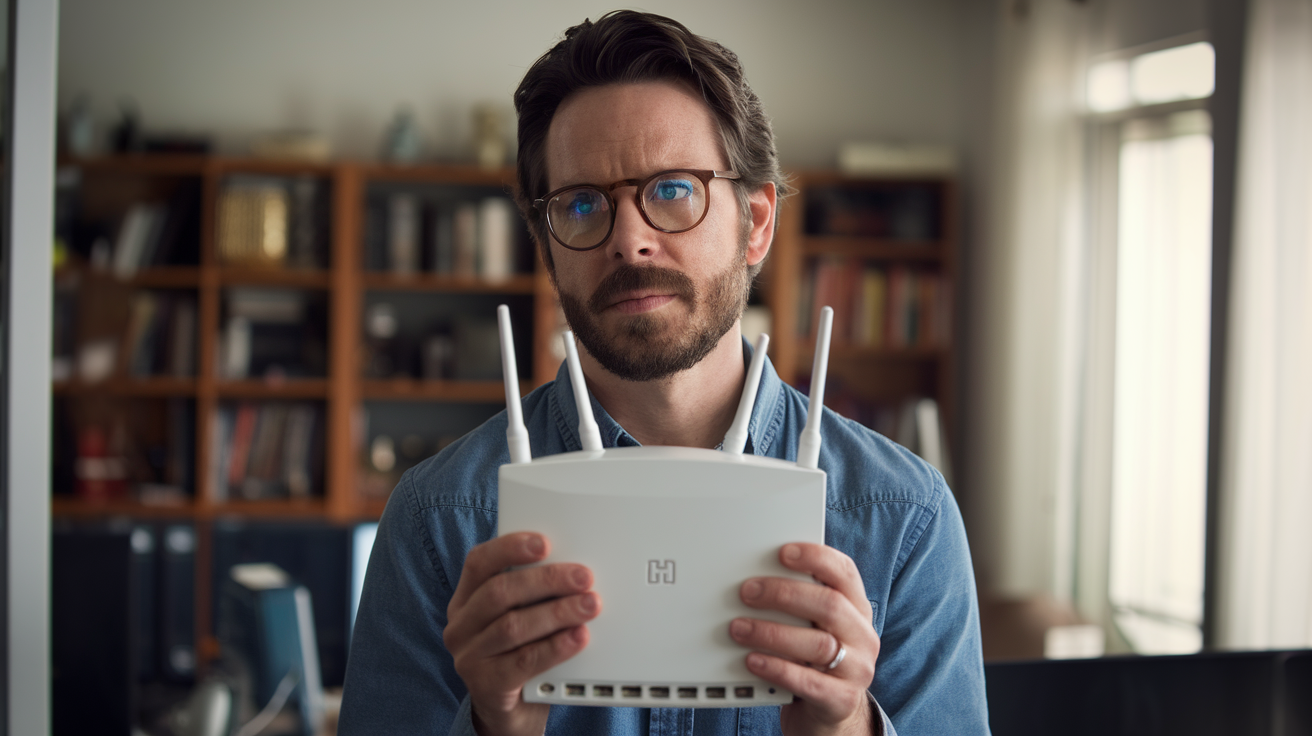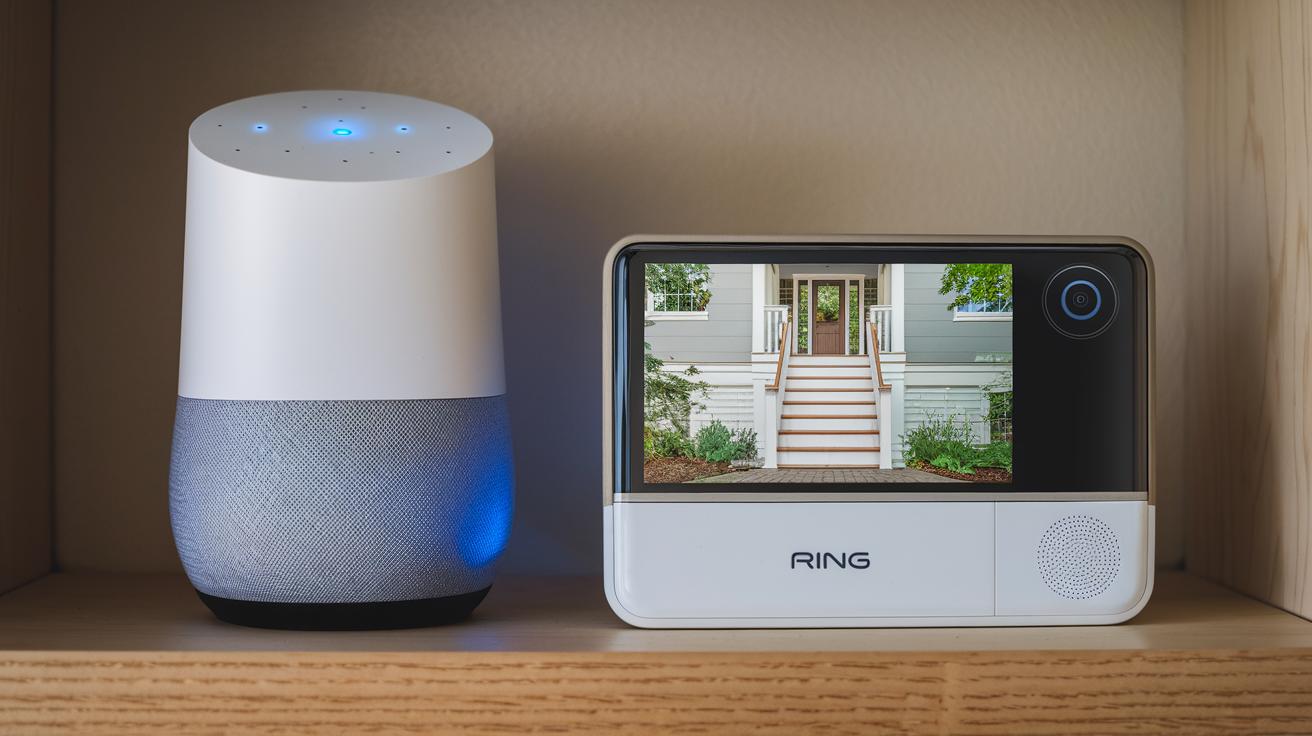Ensuring the protection of our homes has become increasingly important in a time when fast-changing technology developments are altering our lives. Home security systems give a proactive way to protect our valuables and loved ones. Given the abundance of choices on the market, selecting the ideal home security system can be intimidating. This comprehensive guide seeks to analyze numerous elements of home security systems, letting you make an informed decision that corresponds with your unique needs and preferences.
Understanding Your Needs:
First of all, you should evaluate your particular needs before exploring the particular characteristics of home security systems. Consider considerations such as the size of your home, the neighborhood's safety, your economic limits, and any unique security concerns you may have. The initial self-assessment will serve as a foundation for selecting a system tailored to your needs.
Types of Home Security Systems:
- Monitored Systems: Monitored Home Security Systems feature professional monitoring services. In the event of an alarm trigger, the monitoring center is alerted, and they can take appropriate action, such as contacting emergency services or notifying you. You. These systems offer better security; their monthly subscription costs are sometimes prohibitive.
- Unmonitored Systems: Unmonitored systems are more budget-friendly, as they don't involve ongoing subscription costs. costs. systems, alarms trigger a loud siren or flashing lights to scare off intruders. However, the responsibility of responding to the alarm falls entirely on you or your neighbors.
- Wireless Systems: Wireless home security systems have gained popularity due to their quick installation and adaptability. Systems use Wi-Fi or cellular connections, minimizing the need for substantial wiring. wiring. suitable for renters or homeowners looking for a non-invasive installation process.
- Conversely, wired systems—which are more conventional and need real wiring across your house—have While they may be more reliable in terms of connectivity, the installation process can be labor-intensive and may require professional assistance.
Key Features to Consider:
- Smart Home Integration: Modern home security systems often come integrated with smart home integration. Ion allows you to control and monitor your security system remotely using a smartphone or other smart devices. Integration with Google Assistant or Amazon Alexa gives still another degree of convenience.
- A key element of home security is video surveillance। Consider systems with high-definition cameras, night vision capabilities, and wide-angle lenses for comprehensive coverage. Some systems also offer cloud storage for video footage, ensuring that you can review and access recordings remotely.
- Motion Sensors: Motion sensors detect movement in specific locations and trigger alarms. Modern systems let you vary sensitivity levels to prevent false alarms. Friendly motion sensors are made to tell human from pet motions, therefore lowering the possibility of needless alarms.
- Door and window sensors are weak points that call for particular attention. and window sensors warn you when these points are opened, offering an additional layer of security. for systems that allow easy customization to accommodate your home's layout.
- Remote Monitoring and operation The ability to monitor and operate your security system remotely offers a sense of convenience and assurance. Check if the system allows you to arm or disarm it, receive real-time warnings, and watch video feeds from your mobile device, regardless of your location.
- Environmental Monitoring: Beyond security against intruders, some systems offer environmental monitoring for factors like smoke, fire, and carbon monoxide detectors. Including these capabilities in the system improves general home safety.
Choosing the Right Provider:
- Research the standing of possible security system vendors. Read consumer reviews, testimonials, and expert comments to measure the dependability and contentment of other users.
- Customer Support: A responsive and helpful customer support team is crucial, especially in emergencies. emergencies. Companies with 24-hour customer support to guarantee help is always available as needed.
- Contract Terms and Price: Pricefully evaluate contract terms and price structures. Providers may offer flexible contracts or month-to-month options, while others may require long-term commitments. Lodging to a strategy, take into account your tastes and financial situation.
- One of the main determinants is the equipment quality. quality service that offers durable, trustworthy, and technologically advanced security devices. Liers may supply equipment as part of the bundle, while others may require separate purchases.
Frequently Asked Questions
1. What features should I look for when choosing the best home security system?
When choosing a home security system, consider features such as high-resolution cameras, motion detection, smartphone compatibility, professional monitoring, and integration with other smart home devices. Look for systems that meet your specific needs and provide a comprehensive security solution for your home.
2. Are wireless home security systems better than wired ones?
The choice between wireless and wired home security systems depends on your preferences and home setup. Wireless systems offer easier installation and flexibility, while wired systems may be more reliable but require more extensive installation. Consider factors like convenience, maintenance, and your home's structure when deciding which type of system is best for you.
3. How much does a top-notch home security system typically cost?
The cost of a home security system varies based on factors like the level of technology, features, and whether you opt for professional monitoring. On average, you can expect to pay anywhere from a few hundred to a few thousand dollars for a quality home security system. It's essential to find a balance between your budget and the level of security you desire.
4. Can I install a home security system by myself, or do I need professional installation?
Many modern home security systems are designed for easy DIY installation, providing step-by-step instructions. However, some individuals prefer professional installation to ensure the system is set up correctly. Assess your comfort level with technology and follow the guidelines provided by the manufacturer to determine whether a DIY or professional installation is the right choice for you.
5. Do home security systems come with any warranties or guarantees?
Yes, most reputable home security system providers offer warranties or guarantees. These can vary in duration and coverage, so it's crucial to review the terms and conditions before making a purchase. A warranty provides peace of mind, ensuring that you can address any issues with the system within a specified period after installation.
Conclusion:
Choosing the best home security system ultimately requires careful evaluation of your particular requirements, accessible features, and provider reputation. Take the time to research and compare options, keeping in mind that the right system for you might not be the same as for someone else. By understanding your requirements and exploring the available features, you can make an informed decision to create a secure and protected home environment for you and your loved ones.
Call (888) 805-5456 to install your home security system now!
